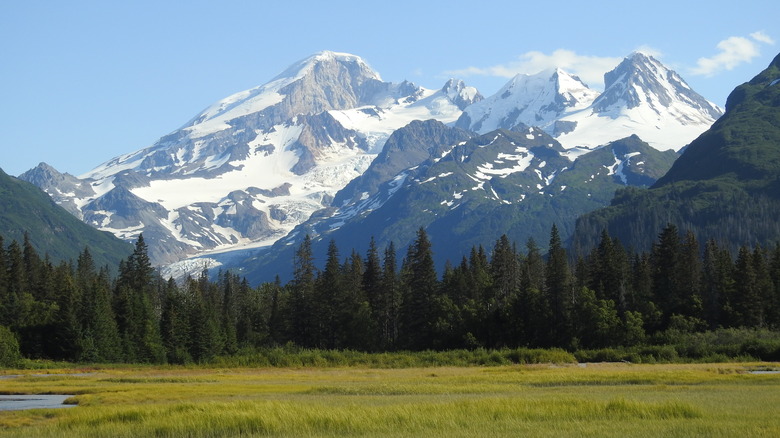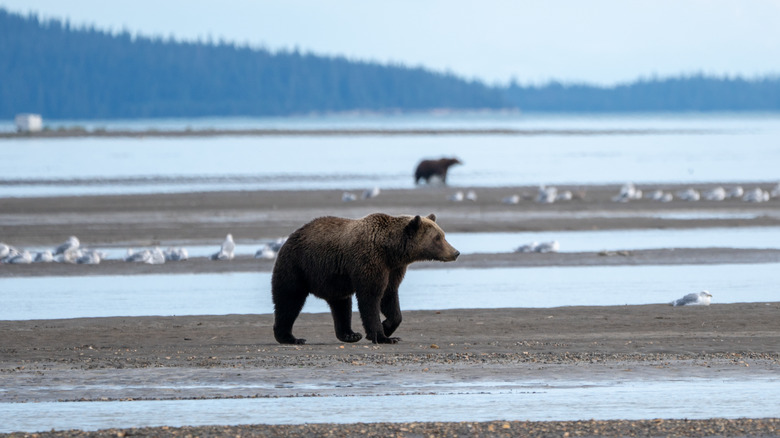Keep An Eye Out For Bears When Hiking In This Beautiful Alaska National Park
Despite being the least densely populated state in the United States, Alaska has gained popularity in pop culture. From the legendary tale of Balto to the reality show "Alaskan Bush People," Alaska is thought of as uncharted, if not a bit treacherous. However, this has not prevented Alaska from also being popular for tourism, including via cruise. The state has a plethora of outdoor activities, national parks, the tallest mountain in North America (Denali), and wildlife galore. Given that the northern part of the state is in the Arctic Circle, many of Alaska's tourist draws and all of its largest cities are in the southern section.
One of these tourist draws is Chinitna Bay in Lake Clark National Park southwest of Anchorage. Not only can you see brown bears here, but you can also backpack and hike in the area. Tours by boat or by plane can help travelers stay safe while walking among these important, but potentially dangerous animals.
Visiting Lake Clark National Park is only possible by plane or boat
The only ways to get to Lake Clark National Park are by boat or plane. Rust's Flying Service takes tourists from Lake Hood in Anchorage to Bear Mountain Lodge in Chinitna Bay. Guides at the lodge discuss the bears that frequent the area before accompanying the tour groups to the best places for bear sightings. This lodge offers tours of its own either for a day trip or overnight. Bear Viewing in Alaska has tours from Anchor Point by boat rather than by air, bringing passengers closer to whales and seals before touching back on land for the bears. Air taxis like Lake Clark Air and Alaskan Air Adventures double as tour companies and leave from Anchorage regularly.
Lake Clark National Park is also home to volcanoes, mountains, and pristine lakes. Keeping the park and the wildlife within it in good condition means there are rules. For example, eating at Chinitna Bay during the summer is not allowed in order to prevent human-wildlife contact, as bears are opportunistic omnivores. See the National Park Service website for all rules for Lake Clark.

